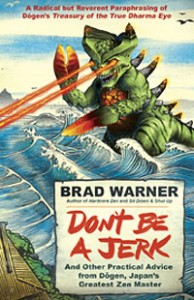Get It All Done By Telling Your Time What to Do
By Helene Segura, author of The Inefficiency Assassin
Have you ever had “one of those days” during which nothing goes to plan? You’d put some thought into what you wanted to get done and had your mile-long to-do list. You had the best of intentions, and that’s worth something, too, right? But since things didn’t quite go your way, that knocked you off track – and you never exactly got back on.
One of the questions I’m frequently asked by clients and audience members is: How can you manage your schedule and get it all done when unexpected incidents arise?
The answer: morph your time.
What?!?
That’s right. Morph. Your. Time. This is not to be confused with dancing the Time Warp from the Rocky Horror Picture Show. Morphing your time means that you schedule your day in blocks or chunks of time, and you can move around those time blocks when necessary. Morphing time means that you take back control of your day and tell your time what to do. Let’s look at how to do that.
Know what your top three priorities are for the day, so you know what to focus on should anything crazy happen.
Our brains tend to get discombobulated when something unanticipated lands in our laps. Even when it’s something wonderful, we usually can’t think clearly right away. When something scary or infuriating happens, that twists up our brain cells even more, taking our focus off what we’d originally planned to do.
When you know what your top three objectives are for the day, and you have them written down or captured digitally, this will help you bring your brain back into focus. With this regained clarity, you’ll be able to make decisions about how to adjust your time blocks.
Allow gaps in your schedule so that you have time for “fires” or opportunities.
Some of my clients who already understood time blocks were experiencing frustration because of how they blocked their time. They were attempting to calculate exactly how much time they’d need to get to and from Point A and Point B, as well as precisely how long the task at that location would take. They had no time for any variation.
Refrain from scheduling your day so tightly that you don’t have a break in there somewhere. Estimate how long you think you’ll need to finish a task and add 30% extra when you create that time block. Allow some time in between your meetings and events. If possible, allow a gap of an hour or two at some point in your day so that you can address emergencies or opportunities that arise. If nothing unforeseen crops up, you can instead use this block of time for catching up on something else or getting ahead. By padding your schedule with extra time, you leave room for addressing the unexpected.
If possible, schedule your “fire” for a time that suits you.
Obviously, if you’re having a heart attack or stroke, you’d need to call 911 immediately! Those are true emergencies. In most cases, however, what has suddenly landed in front of us is certainly surprising, and it may need to be addressed sooner rather than later, but it’s not necessarily a true emergency.
For example, when I found a mysterious lump on my leg, it puzzled and scared me, but it was not something worthy of calling 911. So, I went to urgent care the following day during what I’d previously scheduled as one hour for project work time. I chose this specific facility because they have an online appointment system, so I could register, and then drive over (that beats losing time in a waiting room!), plus they were only 10 minutes away from my next appointment. It was more convenient for me to go at this time, than to have dropped everything when I initially found the lump.
When something unexpected lands in your lap, pause for a few moments to assess whether or not it’s a true emergency and when a better time to address it would be.
Readjust your time blocks for appointments and task time as necessary, and base it on your top priorities.
I wound up moving my previously-scheduled-project-time-block-turned-urgent-care-appointment to a different day. That project was not one of my top three priorities for the day, so it was no problem to slide it around. The time blocks for the lower priority tasks I’d originally planned to complete were shifted to two days later. After my tour of urgent care, I dove into the higher priorities – not in a panic, but definitely with even more focus than usual. Everything that truly needed to get done that day got done. Morph time.
When you schedule your day using padded time blocks, and when you understand what your top three priorities are for the day, this allows you to stay focused when something hits you from out of the blue. With this focus, you can morph time. When you realize that you have the power to tell your time what to do, this also lessens the stress levels you feel when oddities crop up because you know that “you’ve got this!” You can get it all done.
Based on the book The Inefficiency Assassin. Copyright © 2016 by Helene Segura. Reprinted with permission from New World Library. www.NewWorldLibrary.com
* * * * *
Helene Segura MA Ed, CPO®, teaches individual clients and keynote and training audiences how to tell their time what to do. She’s been a featured expert in more than 100 media appearances, including Inc. Magazine and Fox, ABC, CBS and NBC affiliates. In her spare time, she does offbeat things like hike the Camino de Santiago and somehow make a leg lump disappear with compression socks, gin and tonic, and a magnet. Details about her new book The Inefficiency Assassin: Time Management Tactics for Working Smarter, Not Longer can be found at www.HeleneSegura.com.

















 Brad Warner is the author of Don’t Be a Jerk and numerous other titles including Sit Down & Shut Up, Hardcore Zen, and Zen Wrapped in Karma Dipped in Chocolate. A Soto Zen priest, he is a punk bassist, filmmaker, Japanese-monster-movie marketer, and popular blogger based in Los Angeles. Visit him online at
Brad Warner is the author of Don’t Be a Jerk and numerous other titles including Sit Down & Shut Up, Hardcore Zen, and Zen Wrapped in Karma Dipped in Chocolate. A Soto Zen priest, he is a punk bassist, filmmaker, Japanese-monster-movie marketer, and popular blogger based in Los Angeles. Visit him online at